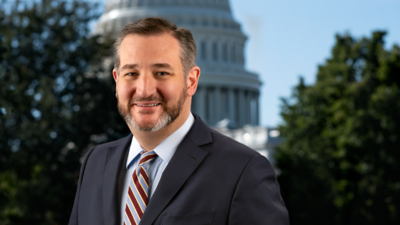Adobe Stock
Adobe Stock
Slapping charter schools with $1.8 million in fines for being late on pension-fund payments is exactly the opposite of how the state should be treating such educational programs, a Chicago-based journalist said during a recent conservative radio talk show.
"It's very disheartening that we continue to march in the opposite direction in this state as far as school choice goes," Chicago Tribune editorial board member Kristen McQueary said during the Dec. 1 edition of "Illinois Rising," which she co-hosted with regular host Dan Proft. "And this is just another example of trying to strangle charter schools. We're not even to a point of real school choice. I think 37 other states have some form of legitimate school choice program, and we keep doing everything we can to make it harder and more difficult for charter schools to operate."
Proft also is co-founder with Pat Hughes of the Illinois Opportunity Project, and is Liberty Principles PAC's chairman and treasurer, as well as a senior fellow at the Chicago-based conservative think tank Illinois Policy Institute. "Illinois Rising" is a presentation of the Illinois Policy Institute.
McQueary also said on the show that her favorite example of a Chicago-area charter school that is working is Southland College Prep Charter High School in Matteson, Illinois. "It is a school that has been around for about six years," McQueary said. "It arose out of the exact purpose of charter schools in the first place. Parents and some school leaders were unhappy with what public schools were offering. They started a charter school; they were fought by every level of the school district. They were saved only by the charter school commission, which allowed them to open. And, of course, Springfield has tried to attack that commission."
Southland Charter Prep is known for its high-achieving students and high graduation rates, in addition to getting students enrolled in college and making sure they graduate from college, McQueary said.
"This is exactly what charter schools were designed to do," she said. "We should be (supporting) it. Instead, we are constantly suffocating them, and this example of charging interest payments and fining charter schools who aren't up to date on their pension payments is just one example of that. When you have CPS, who ... relies on Springfield, relies on taxpayers to make all its pension payments when it wants to, and is always behind in making proper pension payments."
Springfield can't always be counted on to bail out Chicago Public Schools' pension fund, as the school system found out earlier this month. On Dec. 1, Rauner vetoed legislation that would have provided $215 million that Chicago Public Schools needs to fill a massive hole in its pension fund. Rauner placed the blame on state Senate President John Cullerton (D-Chicago), whom Rauner said reneged on a promised deal for broader reform in exchange for his signature on this legislation.
The state Senate managed to override Rauner's veto, but the House could not find the 71 votes it needed to follow suit, so Rauner's veto of the bill to bail out Chicago Public Schools' pension fund was final.
The $1.8 million in fines slapped on Chicago-area charter schools was announced less than a week before Rauner's veto. A contract cap is being blamed for only one charter school operator's decision in November to open a new campus under Chicago Public Schools instead of the dozens of campuses proposed earlier in the year.
Springfield lawmakers are still gunning for charters schools, McQueary said.
"There probably are 10 or 12 pieces of legislation in Springfield right now to make it harder for charter schools to recruit students, to operate," she said.






 Alerts Sign-up
Alerts Sign-up